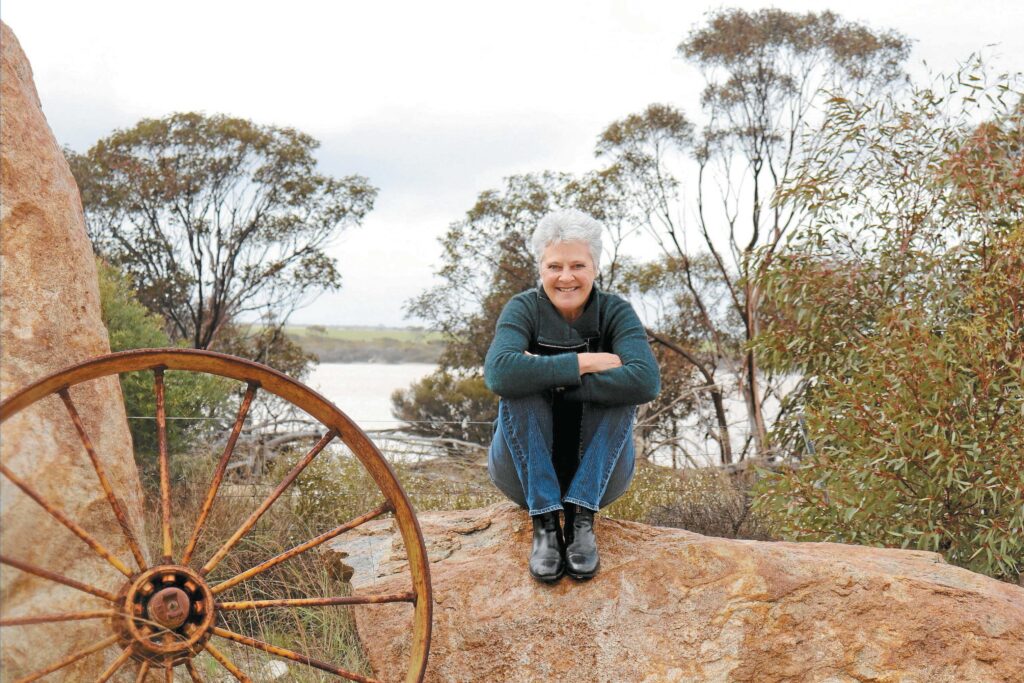Cocanarup Planting Crew. From left – Matt Garlett, Tarhj Fitzgerald, Sean Hazelden (Land Enterprise Project Lead), Caleb Nelson, Dave Riley, Shelden Graeme, Brandon Casey.
The local native title group has purchased degraded farmland west of Ravensthorpe and started restoring the native forest that once covered the paddocks.
Sean Hazelden, who is Land Enterprises project lead for Esperance Tjaltjraak, said the block included very high conservation value nesting habitat for the threatened Carnaby’s cockatoo.
He said they purchased the land because it had high diversity value, and also dovetailed into the Cocanarup Timber Reserve which had connectivity down into the Kundip Nature reserve and Fitzgerald River National park.
“This adds additional value to what is already a world class Conservation Estate,” Mr Hazelden said.
“The Cocanarup Timber reserve has long been recognised as an area with significant biological values and a lot of people are agitating to make it an A class reserve.
“People have been recommending it since the 1970s, people who have an affinity with conservation and nature for a very long time.”

Mr Hazelden said Tjaltjraak wanted to use land restoration and carbon sequestration as a way of bringing land ownership to Wujari people.
“It gets people out on country, it gives solid employment outcomes on country and it is restoring country, healing country,” he said.
“That area was chosen because it was a run down property that didn’t have a lot of value as a farming property, but it has enormous value for increasing and buffering biodiversity for that important area.”


Mr Hazelden said they had revegetated about 10ha last year and this year had been working on a combination of direct seeding and planting seedlings over about 115 ha.
“We start with land assessment and botanical surveys, followed by a seed collecting program firstly to grow seedlings and secondly for direct seeding,” he said.
“For direct seeding we collected about 75kg of seed, all from that area.
“We planted 80,000 seedlings into the area from July, early August.
“More than 40 species of native plants will be put into the revegetation works as either seed or seedlings.”

Mr Hazelden said the rangers would also be involved in Carnaby’s black cockatoo nesting monitoring with Birdlife Australia and the Cocanarup Conservation Alliance.
He said the projects were paying for themselves, including the cost of the land and the cost of the revegetation works themselves.
“We had to borrow the money at market rates. It’s not a free kick,” Mr Hazelden said.
“The project will be registered as an emission reductions fund with the Clean Energy Regulator and we’ll be farming or selling the carbon produced by the project.
“That will fund the purchase of the land and provide future income for the organisation.”
He said they had also planted 200,000 trees over approximately 400ha on Kardutjaanup, 20km west of Salmon Gums.
“They are the two main projects that are part of the Land Enterprise business unit,” Mr Hazelden said.
“We would have employment for at least 10 people — some are casual or part time.
“The number of people involved steadily increase over time and as the project grows the management will increase.”
Land Enterprise is the title of one of eight business units run by the Esperance Native Title Group Aboriginal Corporation (ETNTAC).


